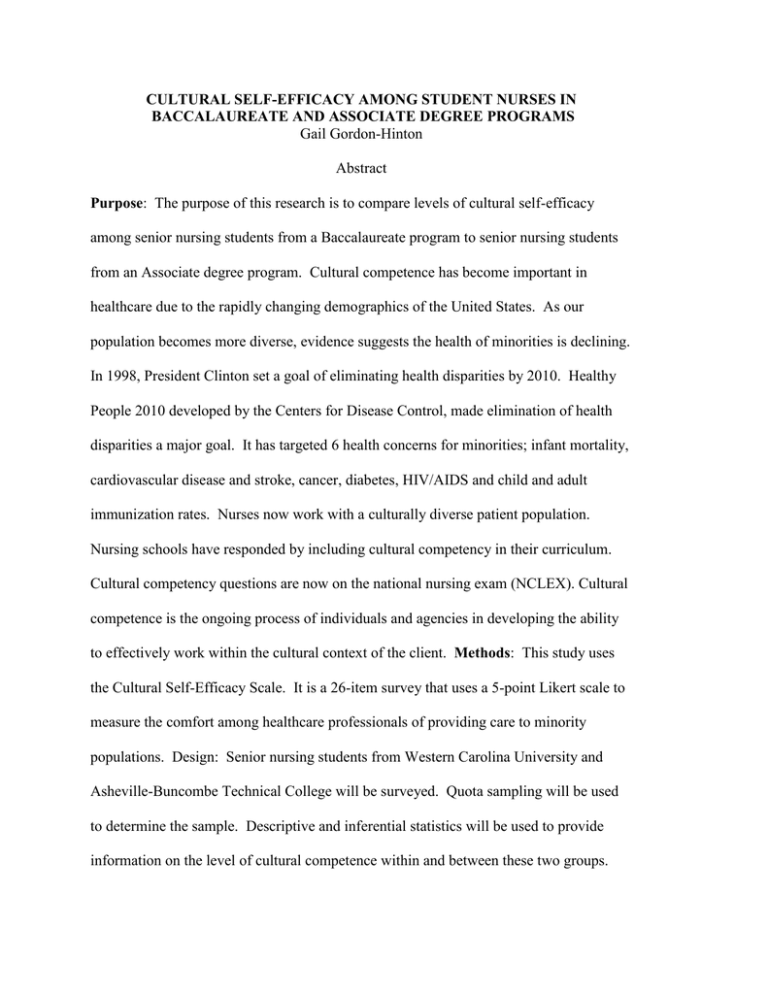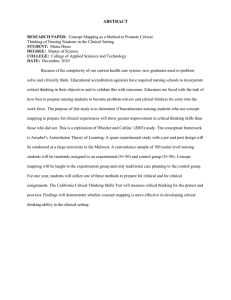CULTURAL SELF-EFFICACY AMONG STUDENT NURSES IN BACCALAUREATE AND ASSOCIATE DEGREE PROGRAMS Purpose
advertisement

CULTURAL SELF-EFFICACY AMONG STUDENT NURSES IN BACCALAUREATE AND ASSOCIATE DEGREE PROGRAMS Gail Gordon-Hinton Abstract Purpose: The purpose of this research is to compare levels of cultural self-efficacy among senior nursing students from a Baccalaureate program to senior nursing students from an Associate degree program. Cultural competence has become important in healthcare due to the rapidly changing demographics of the United States. As our population becomes more diverse, evidence suggests the health of minorities is declining. In 1998, President Clinton set a goal of eliminating health disparities by 2010. Healthy People 2010 developed by the Centers for Disease Control, made elimination of health disparities a major goal. It has targeted 6 health concerns for minorities; infant mortality, cardiovascular disease and stroke, cancer, diabetes, HIV/AIDS and child and adult immunization rates. Nurses now work with a culturally diverse patient population. Nursing schools have responded by including cultural competency in their curriculum. Cultural competency questions are now on the national nursing exam (NCLEX). Cultural competence is the ongoing process of individuals and agencies in developing the ability to effectively work within the cultural context of the client. Methods: This study uses the Cultural Self-Efficacy Scale. It is a 26-item survey that uses a 5-point Likert scale to measure the comfort among healthcare professionals of providing care to minority populations. Design: Senior nursing students from Western Carolina University and Asheville-Buncombe Technical College will be surveyed. Quota sampling will be used to determine the sample. Descriptive and inferential statistics will be used to provide information on the level of cultural competence within and between these two groups. Results: ADN students were more confident in providing nursing skills. BSN students were more confident in cultural concepts. Nursing skills had incomplete data. Conclusions: Information on the confidence of senior nursing students in providing culturally competent care is of great interest to nursing faculty. However, given the small sample in this study, further research is needed.


